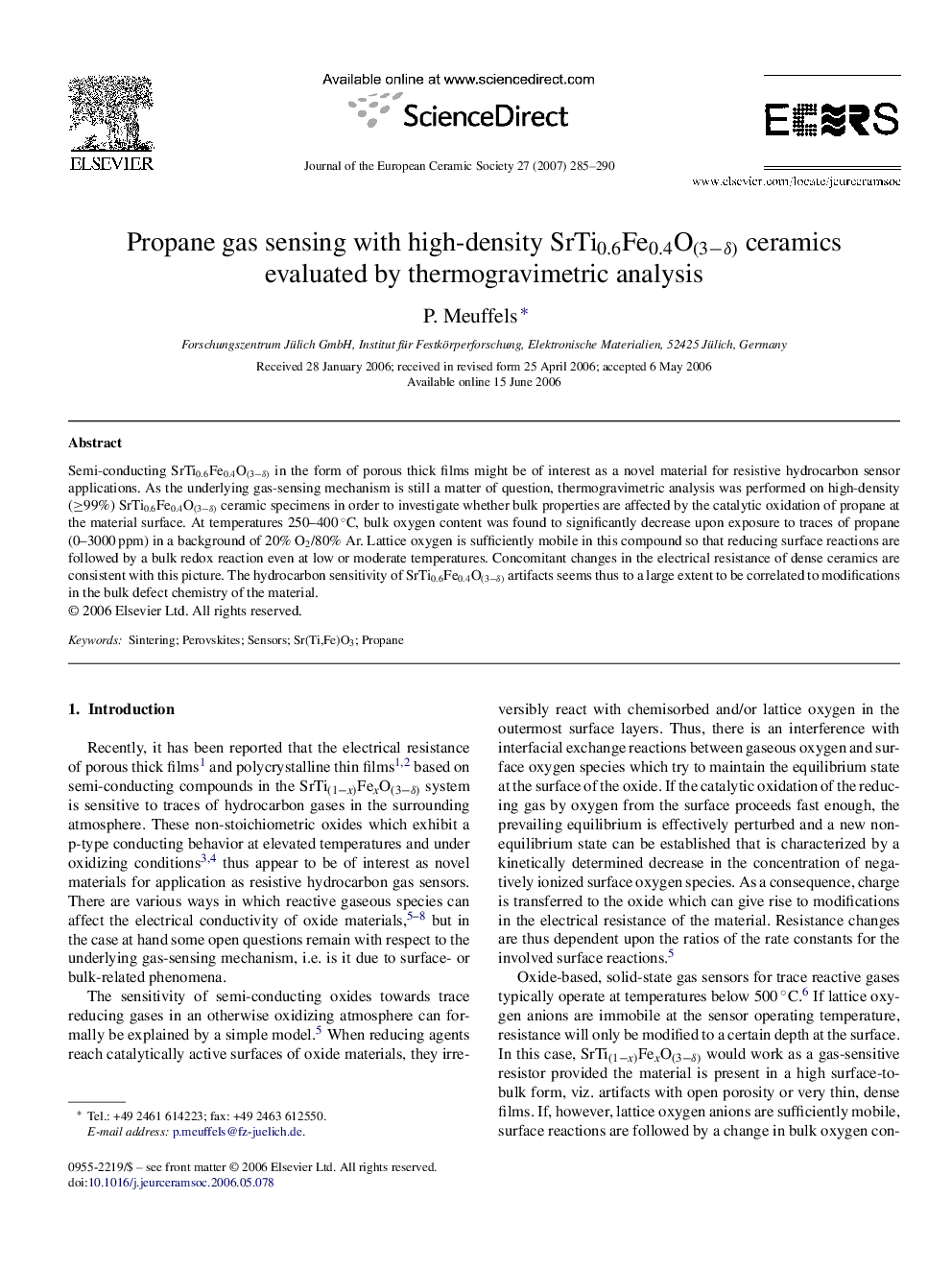| Article ID | Journal | Published Year | Pages | File Type |
|---|---|---|---|---|
| 1476980 | Journal of the European Ceramic Society | 2007 | 6 Pages |
Semi-conducting SrTi0.6Fe0.4O(3−δ) in the form of porous thick films might be of interest as a novel material for resistive hydrocarbon sensor applications. As the underlying gas-sensing mechanism is still a matter of question, thermogravimetric analysis was performed on high-density (≥99%) SrTi0.6Fe0.4O(3−δ) ceramic specimens in order to investigate whether bulk properties are affected by the catalytic oxidation of propane at the material surface. At temperatures 250–400 °C, bulk oxygen content was found to significantly decrease upon exposure to traces of propane (0–3000 ppm) in a background of 20% O2/80% Ar. Lattice oxygen is sufficiently mobile in this compound so that reducing surface reactions are followed by a bulk redox reaction even at low or moderate temperatures. Concomitant changes in the electrical resistance of dense ceramics are consistent with this picture. The hydrocarbon sensitivity of SrTi0.6Fe0.4O(3−δ) artifacts seems thus to a large extent to be correlated to modifications in the bulk defect chemistry of the material.
